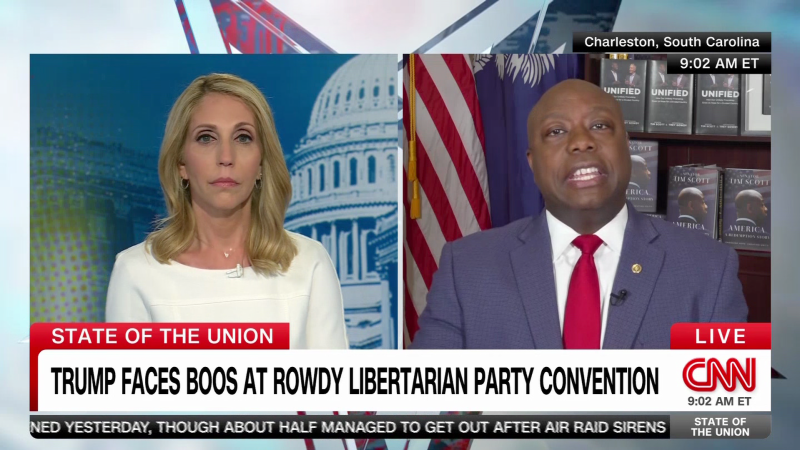In a recent interview, CNN’s Dana Bash questioned Senator Tim Scott about President Trump’s inflammatory rhetoric regarding the FBI’s search of Mar-a-Lago in 2022. Trump falsely claimed that the FBI was “locked and loaded, ready to take me out” during the search, despite the fact that similar language was also used in the order to search President Biden’s home. Despite the controversial nature of Trump’s remarks, Senator Scott refrained from condemning the former president’s rhetoric, instead deflecting the question and focusing on other issues.
Senator Scott’s response to Bash’s question highlights the ongoing challenge of confronting inflammatory and false statements made by political figures, especially when they come from within one’s own party. As a potential Vice Presidential hopeful for the Republican party, Senator Scott’s reluctance to criticize Trump’s rhetoric may be seen as an attempt to avoid alienating Trump supporters and maintaining party unity. However, this approach also raises questions about the Senator’s willingness to confront the truth and hold political leaders accountable for their actions and statements.
The issue of Trump’s rhetoric and its potential impact on public perception and political discourse is not new. Throughout his time in office, Trump was known for using inflammatory language and making false claims, leading to widespread criticism and controversy. The fact that Senator Scott chose not to condemn Trump’s remarks on the FBI search of Mar-a-Lago raises concerns about the Senator’s commitment to truth and accountability in politics, and may further polarize public opinion on the matter.
In the current political climate, where misinformation and divisive rhetoric are rampant, it is more crucial than ever for political leaders to uphold the truth and ensure accountability among their peers. By failing to condemn Trump’s false claims about the FBI search of Mar-a-Lago, Senator Scott may be seen as contributing to the spread of misinformation and undermining public trust in political institutions. This raises questions about the Senator’s leadership credentials and ability to navigate complex political issues with integrity and transparency.
As the 2022 midterm elections approach and the Republican party seeks to regain power in Congress, the actions and statements of party members like Senator Scott will be closely scrutinized. The Senator’s response to questions about Trump’s rhetoric on the FBI search of Mar-a-Lago may impact his standing within the party and his chances of being chosen as a Vice Presidential candidate. Ultimately, the episode serves as a reminder of the importance of truth and accountability in politics, and the challenges that leaders face in navigating the complexities of political discourse in an era of heightened polarization and misinformation.
In conclusion, the controversy surrounding Trump’s rhetoric on the FBI search of Mar-a-Lago and Senator Scott’s response to the issue underscore the challenges that political leaders face in upholding truth and accountability in today’s political environment. The episode highlights the need for leaders to resist divisive and false rhetoric, and to prioritize transparency and integrity in their actions and statements. As the political landscape continues to evolve, it is essential for leaders like Senator Scott to demonstrate a commitment to truth and accountability in order to regain public trust and promote a more constructive and inclusive political discourse.


